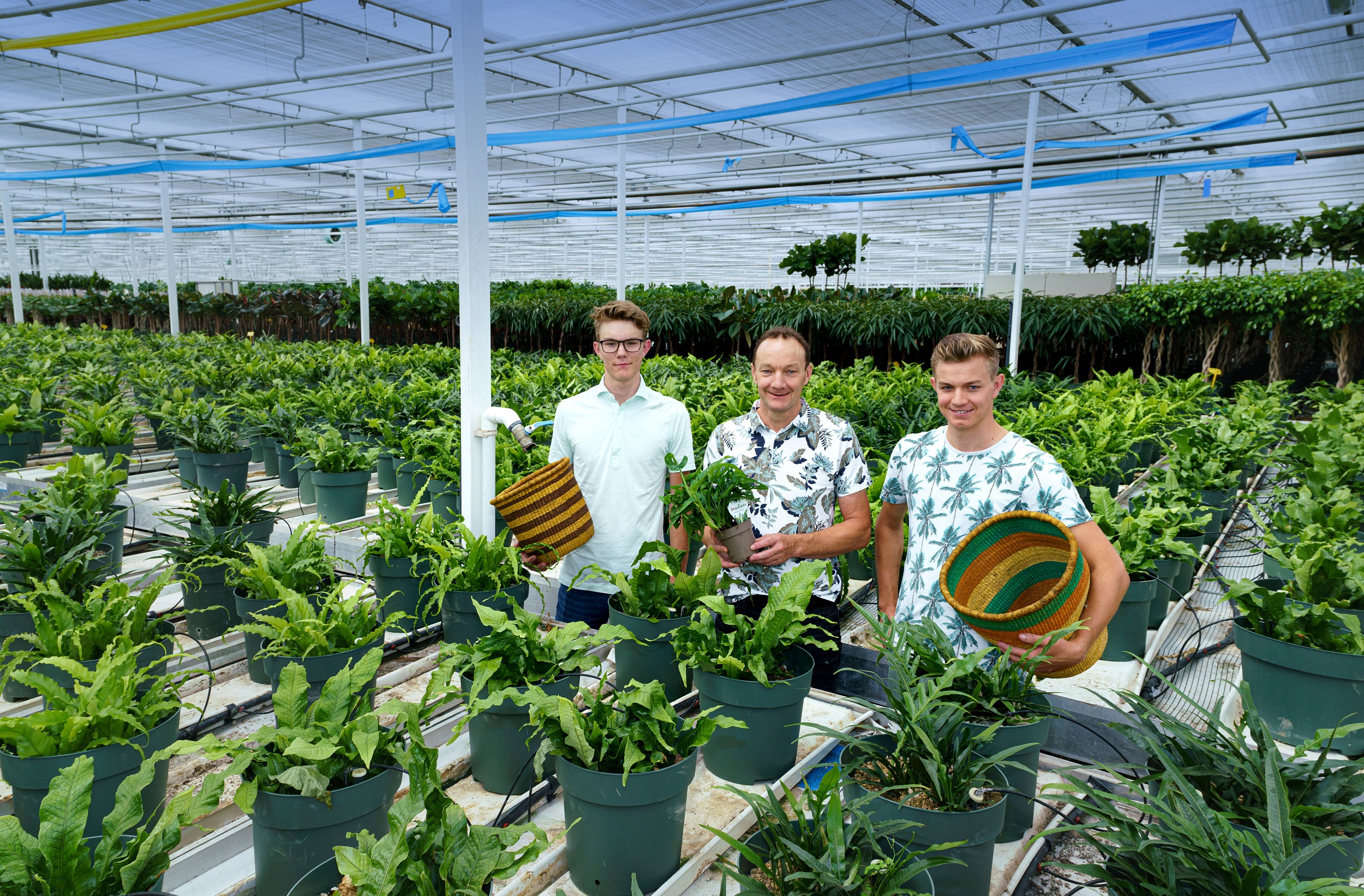1987 – Not a herd animal
Marcel Duijvesteijn grew up between greenhouses and founded MDK Plants & Decorations in 1987. “I saw a challenge in the cultivation of indoor plants. I wanted to build a good name for myself with quality products.” The company first moved from Delfgauw to Bleiswijk and then to its current location in Honselersdijk in 1996. The cultivation of cut foliage was added and the commercial name changed to MDK Flowers & Greens. Shortly after the turn of the century, the company expanded and a mobile table system came into use. But Marcel already looked ahead and made his own choices. “Where the herd grazes the least grass grows. We could produce better abroad.” Sri Lanka and Peru were options but we settled for Ghana, a stable country with a good climate. MDK started with cut foliage and later, Heliconias and pot plants were added to the collection. The site was expanded every year to its current size of 25 hectares, and it will be doubled again over the coming years.
2021 – From product to concept
Last year, son Jim joined the company after studying at the Agricultural College in Delft. He is responsible for costing and production planning and for logistics between the Netherlands and Ghana. “The company is in transition. Our business model is shifting from product to concept,” he says. Marcel: “Under the brand names Beautanic Lifestyle (hydroplants) and LovinGreen (houseplants), we supply concepts for garden centres. My other son Roy presents these concepts in garden centres. You have to think from the consumer’s point of view.” MDK recently exchanged its membership with Royal FloraHolland for Plantion. “We are really a fan of Plantion. They are taking good initiatives such as KOA with live imagery, opening up Clock Presales for plants and a Council of the Future.” Jim: “I visited André van Kruijssen once when I was an intern at Holambra.”
2025 – Most sustainable houseplant
“We are one of the most sustainable houseplant companies in the Netherlands,” says Marcel. The Honselersdijk location is connected to geothermal heat and solar panels. The plants are in pots made from recycled materials, and waste is separated. MDK also wants to switch from potting soil to white volcanic granules. Jim: “They emit much less CO2 than normal potting soil and last a long time.” In Ghana, MDK also runs a welfare programme for its employees with free transport, hot meals, healthcare and trainings. Furthermore, MDK is pushing forward with innovations. Marcel developed the Beautanic Hydropot with a built-in reservoir and water meter. “Consumers often do not know how much water to give their plants. That problem is solved with this invention. The hydro plants are in no way more expensive than plants grown in potting soil.” His smile tells us something… “We want to make this even easier and are therefore also in the process of developing an app through which plants themselves can indicate whether they are thirsty or hungry.”



